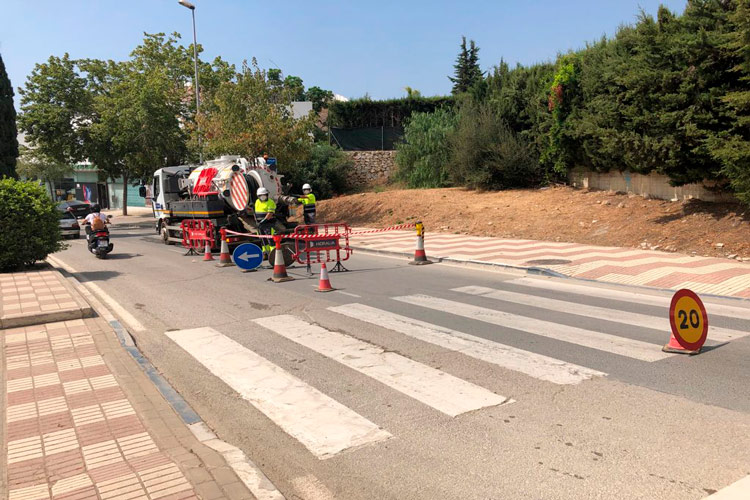Hidralia collects almost 800 tons of waste, mostly wipes, on the Costa del Sol
The jams caused by this non-biodegradable waste, which are added to others such as sticks, diapers, tampons and masks, generate an annual cost of more than 120,000 euros
Hidralia, the company responsible for the integral water cycle in various municipalities of the Costa del Sol Occidental such as Marbella, Estepona or Manilva, and Benahavís through its joint venture Aguas de Benahavís, has collected so far this year some 800 tons of waste from the cleaning and maintenance of the sanitation network.

Among these solid wastes, the most important are wipes, which account for about 40% of those found; that is, about 320 tons of this non-biodegradable waste. They are the main cause of the malfunctioning of the service and do serious damage to the environment of cities, since these elements take more than 500 years to disappear. But wipes aren't the only waste that can be found in the sanitation network; it is also common to find sticks, diapers, tampons and, since the beginning of the pandemic, masks, all items that should not be thrown down the toilet in any case.
Hidralia's technical teams work daily resolving the bottlenecks in the general sanitation network caused by this type of waste, which means that interventions are carried out due to traffic jams not only in the network, but also in the pumping stations, since these wastes block the drive pumps. A problem that is even worse if it reaches the treatment plants.
Awareness
To avoid these problems and achieve an adequate management of this waste, Hidralia carries out different awareness campaigns throughout the year with which it aims to avoid environmental and economic problems caused by obstructions and damage to homes, sewerage networks, pumping equipment and treatment plants.
In order not to produce these jams, only these simple recommendations should be followed: avoid throwing non-biodegradable elements into the usual drainage ducts of the home, whether toilets, sinks or sinks; use bins in the bathroom to throw away wet wipes and other personal hygiene items; and never throw used oil down the drains. The oil joins the caustic soda contained in the soaps used for casting, producing a reaction that ends up creating plugs in the pipes. With the passage of time these plugs harden making it impossible for water to pass through with the consequent jam.
In this way, to diagnose its condition and ensure proper operation, the network is periodically inspected by Hidralia, counting on sensors installed in the control of the spillways and systems that allow to have a knowledge of the state of the network in real time. The digital transformation that the company has carried out in recent times plays a fundamental role to carry out these tasks, since the entire network system is mapped and reflected by GIS computer application, which allows better control when performing maintenance, both preventive and corrective of the network.
